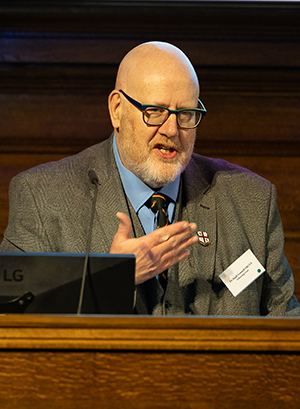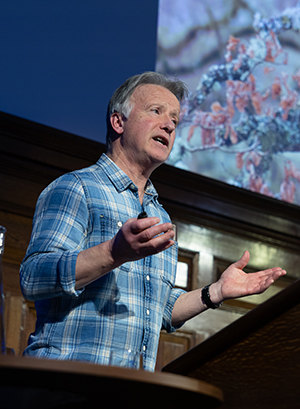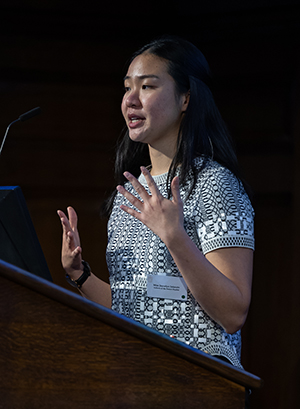-
-
- Council Members
- Role of Council Members
- Council meetings
- Council elections
- Previous election results
- Dr Louise Allum
- Dr Sam Bescoby
- Dr Andrew Clemence
- Dr Tshidi Gardiner
- Dr Reginald Godwin
- Paddy Gordon
- Dr Danielle Greenberg
- Dr Gerard Henry
- Dr Richard Hillman
- Dr Benjamin Kennedy
- Dr Tom Lonsdale
- Dr Darren Partridge
- Martin Peaty
- Alison Price
- Dr Peter Robinson
- Dr Jennifer Simmons
- Dr Sadie Spencer
- Dr Mary Thomas
- William Wilkinson
- Dr Lara Wilson
- Past-Presidents
-
-
-
-
-
- About extra-mural studies (EMS)
- EMS requirements
- Information for vet students
- Information for EMS providers
- Information for vet schools
- Temporary EMS requirements
- Practice by students - regulations
- Health and safety on EMS placements
- EMS contacts and further guidance
- Extra-mural studies fit for the future
-
-
- Code of Professional Conduct for Veterinary Surgeons
- Code of Professional Conduct for Veterinary Nurses
- Contact the Advice Team
- XL Bully dog ban
- 'Under care' - guidance
- Advice on Schedule 3
- Controlled Drugs Guidance – A to Z
- Dealing with Difficult Situations webinar recordings
- FAQs – Common medicines pitfalls
- FAQs – Routine veterinary practice and clinical veterinary research
- FAQs – Advertising of practice names
- GDPR – RCVS information and Q&As
RCVS Fellows discuss the big issues at Fellowship Day 2024
5 December 2024
The latest RCVS Fellowship Day saw the assembled Fellows and students discuss some of the big and pressing global issues facing the veterinary professions, with a focus on One Health and collaboration to get the best outcomes for animal health and welfare and public health.
Fellowship Day 2024 took place on Thursday 28 November at One Great George Street, Westminster, and was opened by Dr Niall Connell FRCVS, former RCVS President and now Chair of the Fellowship Board, charged with meeting the society’s strategic goals of promoting scientific expertise, enriching public discourse on the importance of veterinary science, and furthering professional skills and practice.
Fellowship Chair’s speech
 In his opening speech Dr Connell (pictured) said: “We, as a learned society, understand that it’s not about us and them, but about uniting our wonderful profession and using the best of our skills and knowledge to continue driving it forward within a wide ranging and positive network. So, we must continue to try hard to reflect that to the rest of the profession and beyond.
In his opening speech Dr Connell (pictured) said: “We, as a learned society, understand that it’s not about us and them, but about uniting our wonderful profession and using the best of our skills and knowledge to continue driving it forward within a wide ranging and positive network. So, we must continue to try hard to reflect that to the rest of the profession and beyond.
“In order to do that… collaboration is key. Are all of our Fellows impressive veterinary surgeons in their own field? Yes, of course they are. They’re fantastic. But in order to create a Fellowship which creates long term meaningful change we too must continue to change and evolve and override any potential detrimental stereotypes.
“Fellowship is not just a recognition of achievements – it is an active role in which we take on the responsibility of contributing to the future of the profession. It is those active voices that are essential within our Fellowship, as well as intellect and knowledge, and we need to empower people to come forward and get their voices heard. As Fellows we have a dual role in which we need to use our knowledge to actively help advance the profession through learning and thought, both clinically and scientifically, in order to benefit our professions and wider society.”
President’s speech
In her opening statement current RCVS President Linda Belton reiterated the message of how, through collaboration and knowledge-sharing, the veterinary professions can contribute to wide variety of fields of endeavour. She said: “One of the purposes of the Fellowship is around public discourse and raising awareness of the work of the veterinary profession across society and keeping us connected not just within the profession but to the wider public as well. I wonder if within the profession, we ourselves all really understand the extent to which our work touches so many parts of society today.
“Can the Fellowship perhaps drive that awareness within the profession as well as externally? It's particularly relevant as we look to the area of one health where so many of our fellows have made, and are making, significant contributions. The input of the veterinary voice to this has great potential to improve outcomes for all impacted and that is pretty much every species!
“This afternoon’s panel sessions, community resilience in emergencies and disasters and preparedness for disease threats, again shows the potential for the Fellowship to reach such wide areas of society both in the UK and abroad.”
After the introductory speeches, the 48 new Fellows (some 40 of whom attended on the day) were formally welcomed to the learned society. A list of the new Fellows for this year can be found at www.rcvs.org.uk/fellowship
Guest speaker
 After a short break proceedings move on to this year’s guest speaker, Peter Cairns (pictured), Executive Director of Scotland: The Big Picture, a charity working to rewild Scotland in order to help solve the climate and biodiversity crises. Mr Cairns had been suggested by Professor Anna Meredith FRCVS, Chair of the Fellowship Science Advisory Panel (FSAP) and Chair of Zoological and Conservation Medicine at the Royal (Dick) School of Veterinary Studies at the University of Edinburgh, who had worked with him in the past.
After a short break proceedings move on to this year’s guest speaker, Peter Cairns (pictured), Executive Director of Scotland: The Big Picture, a charity working to rewild Scotland in order to help solve the climate and biodiversity crises. Mr Cairns had been suggested by Professor Anna Meredith FRCVS, Chair of the Fellowship Science Advisory Panel (FSAP) and Chair of Zoological and Conservation Medicine at the Royal (Dick) School of Veterinary Studies at the University of Edinburgh, who had worked with him in the past.
In his speech Peter pointed out how Scotland, like the rest of Great Britain, was one of the most nature depleted places in Europe, that had not only seen the decline or extinction of animal species, but the loss of entire ecosystems to intense agriculture and forestry. He spoke about the work that his charity was doing across Scotland in collaboration with other organisations and the Scottish government, how rewilding of ecosystems offered climate and biodiversity solutions and how his conception of rewilding was not in conflict with people or farming, but could be complementary. After his speech the floor was opened to questions, with discussions on the potential risks of zoonoses, the role of veterinary surgeons in rewilding, and the relationship between agriculture and rewilding all taking place.
Fellows of the Future competition
Outreach and engagement within the veterinary professions has been one of the key strategic aims of the Fellowship, and one of the most critical aspects of this has been building strong connections between the Fellowship and veterinary students who are just at the very beginning of their professional journey.
The Fellows of the Future competition has therefore been a staple of Fellowship Day for a number of years, giving students the opportunity to present their research projects to the assembled RCVS Fellows.
This year’s Fellows of the Future finalists were:
- Laura Huntenburg, University of Liverpool, who presented her work on Progressive methods of reducing lameness in the UK sheep industry: A study on the use of thermal imaging as a diagnostic tool to identify sheep foot lesions;
- Joycelyn Intanate, Royal Veterinary College, who presented her research on ‘Patient benefit and factors associated with technique success of sentinel lymph node mapping via indirect computed tomography lymphography in small animal oncology patients’.
- Hannah Shanks-Boon, University of Liverpool, who will be presenting her research project entitled ‘Increased soft palate angle and basihyoid depth is related to increased body condition score and increased tongue size in the horse’.
 Following the presentations a panel of judges was convened to choose the winner of the competition. They decided upon the RVC’s Joycelyn Intanate (pictured) who receives a £200 book token, with the other two highly commended presenters receiving a £100 book token each.
Following the presentations a panel of judges was convened to choose the winner of the competition. They decided upon the RVC’s Joycelyn Intanate (pictured) who receives a £200 book token, with the other two highly commended presenters receiving a £100 book token each.
Joycelyn said: “This was one of my first times giving a public speech, I was nervous but it was a great experience. I’ve taken away from today that there’s nothing to lose from giving an opportunity a go – I was nervous before applying [to the competition] in case I didn’t get it, but I realised I would regret it if I didn’t give it a go. My favourite part of Fellowship Day has been getting to meet everyone else, everyone has been so friendly and supportive.”
This year the RCVS also invited all those students who entered the Fellows of the Future competition to both attend Fellowship Day and to submit a poster of their research, and these submitted posters were displayed for guests on screen in the break areas.
Panel session discussions
The final major set-pieces on the afternoon of Fellowship Day 2024 were the two panel session discussions on global issues for which the veterinary professions could make a contribution.
The first panel session was chaired by Professor Anna Meredith and was titled ‘Preparedness for disease threats’ with a panel comprising Dr David Black, Dr Tiffany Hemming, Professor Fiona Tomley, and Professor James Wood.
James Wood, Fellowship Vice-Chair, said: “The session was introduced by Anna, who challenged each panellist to describe key issues around disease preparedness, control, sustainability, animal welfare and microbiological research, all in a One Health context. The discussions were soon broadened to include the expertise and interests from other Fellows in the audience. As there is a lot of government work in this area, across a very broad front, the importance of the breadth of expertise available rapidly became evident. There was interest and scope for the Fellowship to do far more collectively in this space.”
The second panel session was chaired by Niall Connell and was titled ‘Community resilience for emergencies and disasters’ with a panel comprising Mr Jim Green, Dr Adam Mugford, and Dr Nicola Housby-Skeggs.
Niall Connell said: “Jim from the British Animal Rescue & Trauma Care Association (BARTA) led the excellent discussion, highlighting the developing role for veterinary professionals in support of community preparedness for incidents involving animals. The importance of veterinary surgeons attending emergencies was recognised and this essential responder group is actually referred to in the Civil Contingencies Act which details the need to support animals during civil emergencies. There is yet no government framework for this work and a wider role was discussed for vets developing key recommendations for animal welfare during critical events. This is potentially an area that can be looked at with contributions by the Fellowship.”
With the end of the panel sessions and the announcement of the Fellows of the Future competition winner, Dr Niall Connell closed the day with thanks to all the Fellows involved as speakers, judges and panel members and the RCVS staff team.
Further information about the Fellowship, including the application requirements and criteria for each of the three routes to Fellowship, can be found at www.rcvs.org.uk/fellowship. Information about the 2025 Fellowship application round will be made available early next year.